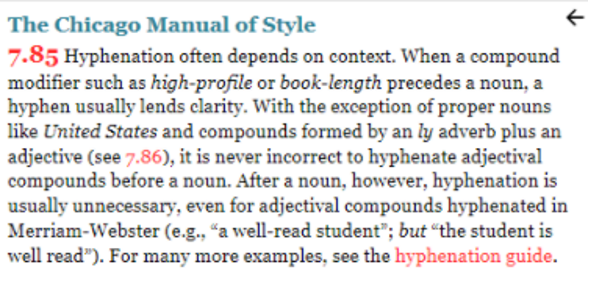Tax-exempt is exempt from this rule
Generally, one hyphenates compound modifiers that precede a noun, but not when the compound modifiers follow the noun. That means you’d write
- Low-cost mutual fund
- A mutual fund that’s low cost
Breaking the rule
That rule has been drummed into me, so I was surprised to read the following in Jan Venolia’s Write Right!: “Idiomatic usage retains the hyphen in certain compounds regardless of the order in which they appear in the sentence.” Venolia uses the following example:
Tax-exempt bonds can be purchased.
The bonds are tax-exempt.
One of my friends “corrected” me on social media when I posted asking examples of more words like “tax-exempt” that are hyphenated even when they follow a noun. I would have done the same thing before I read Venolia’s book.
Style guides and the dictionary
I searched APStylebook.com, which told me to follow the dictionary in hyphenating “tax-exempt.” AP style follows the Webster’s New World College Dictionary, which uses a hyphen.
Similarly, a Chicago Manual of Style (CMOS) blog says, “For matters of spelling, including hyphenation, Chicago usually defers to the first-listed entries in Merriam-Webster.” That blog post also says there are times that CMOS doesn’t follow the dictionary, as shown in the image below.
Are you confused?
Have these exceptions confused you? They sure as heck confuse me. That’s why I subscribe to the online AP Stylebook, and I’ve added on an online subscription to Webster’s New World College Dictionary.
If you find some hyphen questions arise repeatedly, add them to your firm’s style guidelines.
Disclosure: If you click on an Amazon link in this post and then buy something, I will receive a small commission. I provide links to books only when I believe they have value for my readers.






